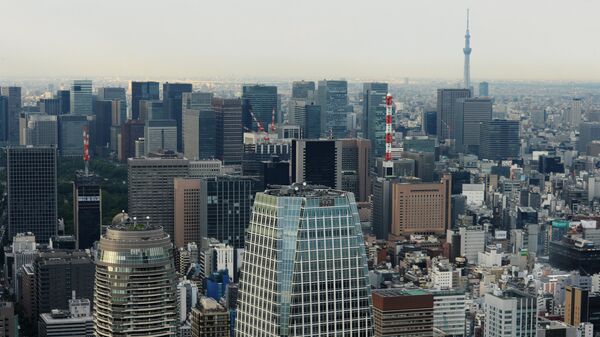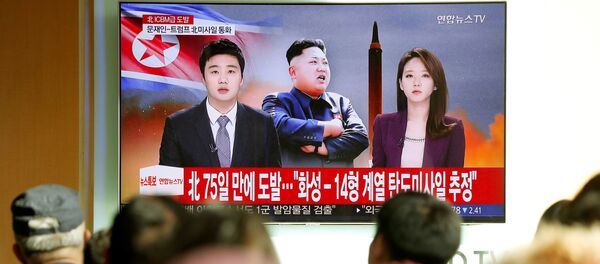Kristian Rouz – Japanese manufacturers report an improved sentiment, citing the broader economic acceleration due to Prime Minister Shinzo Abe’s policies, as well as the favorable international trade environment. This comes as the Japanese government upgraded its economic projections for this year due to the anticipated increase in consumer spending and national exports.
"The Japanese economy is recovering at a moderate pace," Japan’s Cabinet Office reported. "With consumption picking up, improvements have been spreading to households. This led to the upward revision."
Two consecutive years of economic expansion, undisrupted by recessions or stock market shocks, have rendered Japanese manufacturers increasingly optimistic, according to the Bank of Japan’s (BOJ) quarterly survey.
"The market related to industrial machinery and semiconductors is buoyant, with the latter in particular skyrocketing," one of the BOJ’s survey participants reportedly wrote.
The upbeat report might influence BOJ decision-making, and the central bank may consider a gradual tapering of its unconventional stimulus policies.
The expansion in Japan’s manufacturing over the past two years has been driven by the accelerating global economic growth, as well as the demand for technology, cars, and electronics. Meanwhile, robust capital investment and the yen’s FX rate stability against the US dollar have also contributed to the positive manufacturer sentiment.
READ MORE: Japan's Biggest Bank to Introduce Safety Net for Bitcoin Investors
This comes after the Japanese government upgraded its economic forecast for the first time in seven months. PM Shinzo Abe is expecting a further recovery of the national economy, which is on track to overcoming the disinflationary pressures and a stagnation in growth, which have plagued Japan since the early 1990s.
"The difference between previous recoveries and the current recovery is that right now both the corporate sector and the household sector are steadily improving," Economy Minister Toshimitsu Motegi said.
Whilst the government might declare the end of disinflation, the Cabinet Office left its consumer prices expectations unchanged, meaning the policymakers expect it will take time for the effects of economic improvements to be passed on to the consumer market and boost inflation.
Japan’s GDP has grown for the past seven quarters straight, the longest streak of expansion in a decade. Additionally, macro fundamentals suggest demand exceeds supply by its highest level in 9 years, meaning consumer prices are poised to increase. Corporate earnings are just below their record highest, whilst Japan’s stock market is at a 26-year-high.
This as Japan’s unemployment has dropped to a 24-year low at 2.7 percent, whilst the amount of available jobs has increased to its highest in four decades.
PM Abe also called on the nation’s companies to increase worker compensation by at least 3 percent ahead of the upcoming talks between trade unions and the corporate sector. Such an increase would also spur inflation closer to the BOJ’s 2-percent target.




